MILWAUKIE — Marshall Doyle, owner of Cal-Cert, has been asked about his unusual business niche so often that he developed an analogy to explain it.
“You look at your watch to see what time it is, he says, but a watch can be off — by a few seconds or a few minutes. So, if you really have to be sure, you might double-check the time on your phone, kept accurate by a cellular network.”
“We’re the cell phone,” Doyle says.
In the business world, Cal-Cert tests the testers. On big construction projects, contractors are required to pour concrete, lay asphalt, or install wooden beams that meet specified load capacity or other characteristics. They test the material using specialized instruments. Cal-Cert — it stands for Calibration and Certification — certifies the contractor’s equipment.
“We test the machines to make sure they’re giving accurate results,” Doyle says.
After a rough start when Doyle bought the company in 1999, Cal-Cert has streaked to the forefront of a specialized field. The company has worked the past nine years certifying construction work at the Hanford nuclear waste cleanup. It calibrates gauges for Intel, the microchip giant. Doyle received an inquiry the other day regarding dam construction in Ethiopia. The company’s technical manager, Robert Owens, says he’s been on jobs at Prudhoe Bay in Alaska and from Mississippi to Japan.
And three years ago, Cal-Cert landed a role in the world’s biggest current construction project: Building a third set of locks at the Panama Canal. Every six months since, a Cal-Cert crew travels to Panama to calibrate the instruments used by a contractor who’s testing the concrete.
“We get a lot of this weird stuff,” Doyle says with a smile. “Weird translates to good money, usually.”
Doyle obtained a costly and complicated international accreditation in 2005, which essentially allows him to work on projects anywhere in the world. He calls it “one of the best and most important things I did.”
Since then, company revenue has increased to $3.5 million annually from $350,000. He’s grown from four employees to 27 and has two more in training. Business revenue grew by 42 percent in 2008 alone.
Not bad for a Milwaukie guy who doesn’t hold a college degree and whose first job after serving in the U.S. Air Force was power-washing sidewalks for a property management company in downtown Portland.
Not bad for a guy whose mother died when he was in third grade, whose biological father died before he was born and whose stepdad was an Army cook. Not a lot of silver spoons where Doyle came from.
“I know, I can’t believe it myself sometimes,” he says.
Maybe this was a hint of things to come: Within three years of starting with the property management firm, Doyle had ascended to operations manager.
“I try to do everything 110 percent,” he says.
But sometimes hard work just makes you tired. Doyle took a job at Cal-Cert in 1998 and bought it from the retiring owner eight months later. He soon ran into trouble. He’d mortgaged his house to buy the company and sold it rather than lose it in foreclosure. He’d cashed in his retirement fund, had moved the family into an apartment, was paying himself minimum wage and was behind on payroll taxes when he sought help at Clackamas Community College’s Small Business Development Center.
“He was basically broke and didn’t know it,” says center Director Rob Campbell.
Doyle wasn’t unusual in that regard, Campbell says. Starting out, many small business owners have “high domain expertise but don’t know anything about running a business,” he says.
Doyle took a nine-month Small Business Management course, which includes three hours a month of classroom work, small-group meetings and one-on-one counseling.
“He had to learn the language of business, which is the financials,” Campbell says.
Doyle says his wife, Patty, who was Cal-Cert’s bookkeeper in the early days, spotted a flyer for the Small Business Development Center and suggested he attend. Among other things, Doyle realized he didn’t understand the value of his own time, and was giving away too much of it to clients. He increased his prices by 30 percent, figuring he would lose 50 percent of his customers. Instead, he lost only eight customers out of about 1,200.
Doyle has since taken the Small Business Management course 10 more times, believing repeated exposure to the lessons is crucial. He often speaks to students in Campbell’s classes, happily serving as a case study.
This spring, Campbell’s center nominated Doyle as the state’s Small Business Person of the Year. He didn’t win, but the choice was widely applauded at the community college.
“He’s a wonderful role model,” Campbell says. “He has tenacity and he is willing to do the work it takes to be successful. He’s got a student’s attitude and mentality: I don’t know all I need to know, and I need help.”
“That would be me,” Doyle acknowledges.
His near financial ruin in the early days provided an enduring lesson. “I’m never going back there,” he says. “I’m very, very careful all the time, especially with money.”
But the struggle didn’t dampen his fire. A plaque on his wall says, “Wish it. Dream it. Do it.”
“That’s it,” Doyle says. As a small-business owner, “that’s what you do.”
–Eric Mortenson
The Oregonian



